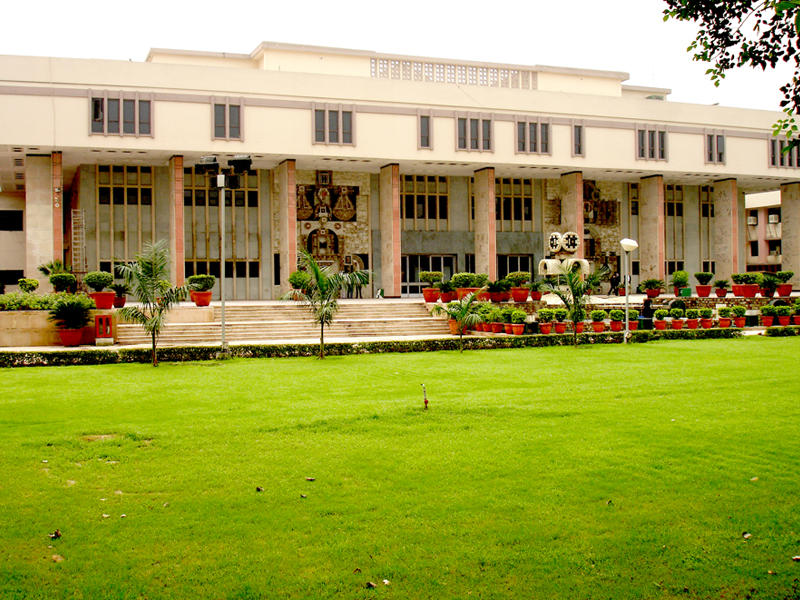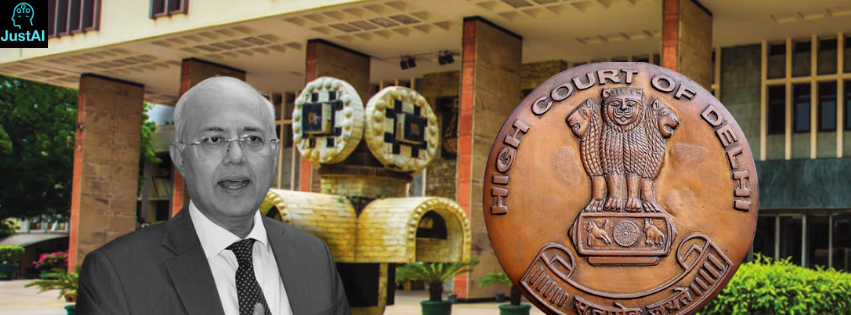Key Highlights
- Delhi High Court Pushes for Law Regulating AI and Deepfakes- The Delhi High Court on 28.8.24 had sought a response from the Union Ministry of Electronics and Information Technology over its demand to prepare a draft on artificial intelligence technologies that create deepfakes, mentioning it as one of the major threats to society. It said such risks needed emergent free developments through legislation well in advance so that injurious deepfake content does not proliferate vainly.
- Inadequacy of Existing Laws to Tackle Deepfake Technology- The court, while hearing the arguments, felt that the existing law, inclusive of but not limited to the Information Technology Act of 2000 and the Digital Data Protection Act of 2023, does not adequately deal with the heterogeneous complexities associated with deepfake technology.
- Learning from International Regulatory Practices- According to the court, the comparison is recommended among the regulatory provisions that apply, at least in force in the US as well as the European Union. For instance, certain US states have already introduced legislative proposals that deal with deepfakes used for political manipulation and non-consensual material, while the EU has included the types of AI under its AI Act with tight requirements on transparency and accountability among the operators.

Credits: The Print
WHY DOES DELHI HC CALL FOR URGENT REGULATION OF AI?
The court’s decision to call for legislative action against deepfakes was influenced by several critical factors:
- Inadequacy of Existing Laws: The court noted that the current legal framework, which includes the Information Technology Act, of 2000, and the Digital Data Protection Act, of 2023, does not sufficiently address the complexities and threats posed by deepfake technologies. Existing laws are outdated or lack the scope to fully address the new challenges posed by AI and such regulatory vacuum has created an environment where deepfakes can thrive unchecked, leading to potentially harmful outcomes for individuals and society at large.
- Global Challenge: Deepfakes are not merely a domestic issue but a global challenge. Countries worldwide are grappling with the ethical, legal, and societal implications of such technologies. The court referred to legislative measures in U.S. states, the European Union, and other regions as examples that India could consider while drafting its laws.
- Electoral Integrity: With the upcoming assembly elections, the court was particularly concerned about the potential misuse of deepfake technology for political manipulation. Various political parties have already approached the court, highlighting the urgent need for regulatory intervention.
- Public Trust and Safety: The ability of deepfake technology to create highly realistic but fake videos and images poses a direct threat to public trust in digital content. The court expressed concern over the societal implications, stating, “Everything you are seeing or hearing is fake; it can’t be,” highlighting the necessity to safeguard the public from potential deception.
To solidify its argument further, the court suggested studying the legislative frameworks adopted by other countries-
- United States: Some states in the U.S. have already enacted specific laws to address the issue of deepfakes, particularly focusing on their use in non-consensual pornography, political manipulation, and defamation. For example, California has laws that prohibit the distribution of deepfake content within 60 days of an election and penalize deepfake pornography made without consent.
- European Union: The EU has initiated a broader approach by incorporating AI and deepfake regulations into its proposed AI Act, aiming to categorize AI systems based on their risk levels and enforce specific requirements to ensure transparency and accountability.
- Tennessee’s Elvis Act: The court mentioned the Elvis Act from Tennessee, a law that protects the likeness of deceased celebrities from being exploited by deepfake technology without permission, showcasing a niche but relevant example of deepfake legislation.
WHY INDIA NEEDS NEW LEGISLATION FOR AI?
During the hearing, the Delhi High Court acknowledged that while technology itself is neutral, its misuse poses significant risks and further highlighted the role of counter-technology tools designed to detect and combat fake AI-generated content as a potential solution, stressing on the fact that relying solely on technology is insufficient without proper regulatory oversight.

Acting chief Justice Manmohan remarked, “You’ll have to do something. You’ll have to start thinking about it; it’s going to be a serious menace in society.” The court also requested the petitioners to submit their suggestions for regulating deepfake technology, taking into account international practices and the evolving nature of AI.
WHAT’S NEXT?
Moving forward, the court directed the petitioners to study the laws introduced by the European Union, the United States, and other jurisdictions and also asked for a fresh affidavit containing their recommendations on tackling the misuse of deepfake technology. The government is expected to take these suggestions into account while considering the enactment of new legislation. The court set 8th October 2024 as the next date for hearing the case, signalling its determination to address this issue promptly, and with the judiciary pushing for action, the ball is now in the government’s court to come up with a comprehensive legal framework to regulate deepfakes and protect citizens from their potential harms.
CONCLUSION
This proactive step on the part of the Delhi High Court might indicate that in India, an emergent need has arisen to take urgent steps for AI and deepfake technologies regulation, and with growing fear of misuse, especially during politically sensitive times, the government needs to get down quickly with framing strong legislation. The best international practices should be followed, and innovative counter-technologies considered continuously to strike a balanced regulatory framework to protect citizens while encouraging technological innovation.
References
https://www.livelaw.in/high-court/delhi-high-court/delhi-high-court-deepfake-ai-technology-267918

